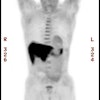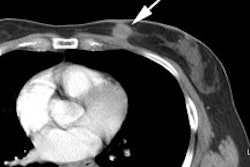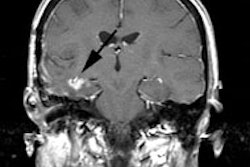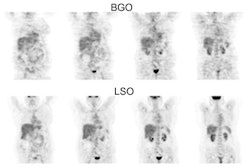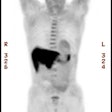| J Nucl Med 2000 Nov;41(11):1842-1848 |
Does cerebral blood flow decline in healthy aging? A PET study with
partial-volume correction.
Meltzer CC, Cantwell MN, Greer PJ, Ben-Eliezer D, Smith G, Frank G, Kaye WH, Houck PR,
Price JC.
It remains a matter of controversy as to whether cerebral perfusion declines with healthy
aging. In vivo imaging with PET permits quantitative evaluation of brain physiology;
however, previous PET studies have inconsistently reported aging reductions in cerebral
blood flow (CBF), oxygen metabolism, and glucose metabolism. In part, this may be because
of a lack of correction for the dilution effect of age-related cerebral volume loss on PET
measurements. METHODS: CBF PET scans were obtained using [15O]H2O in 27 healthy
individuals (age range, 19-76 y) and corrected for partial-volume effects from cerebral
atrophy using an MR-based algorithm. RESULTS: There was a significant difference (P =
0.01) in mean cortical CBF between young/midlife (age range, 19-46 y; mean +/- SD, 56+/-10
mL/100 mL/min) and elderly (age range, 60-76 y; mean +/- SD, 49+/-2.6 mL/100 mL/min)
subgroups before correcting for partial-volume effects. However, this group difference
resolved after partial-volume correction (young/midlife: mean +/- SD, 62+/-10 mL/100
mL/min; elderly: mean +/- SD, 61+/-4.8 mL/100 mL/min; P = 0.66). When all subjects were
considered, a mild but significant inverse correlation between age and cortical CBF
measurements was present in the uncorrected but not the corrected data. CONCLUSION: This
study suggests that CBF may not decline with age in healthy individuals and that failure
to correct for the dilution effect of age-related cerebral atrophy may confound
interpretation of previous PET studies that have shown aging reductions in physiologic
measurements.

